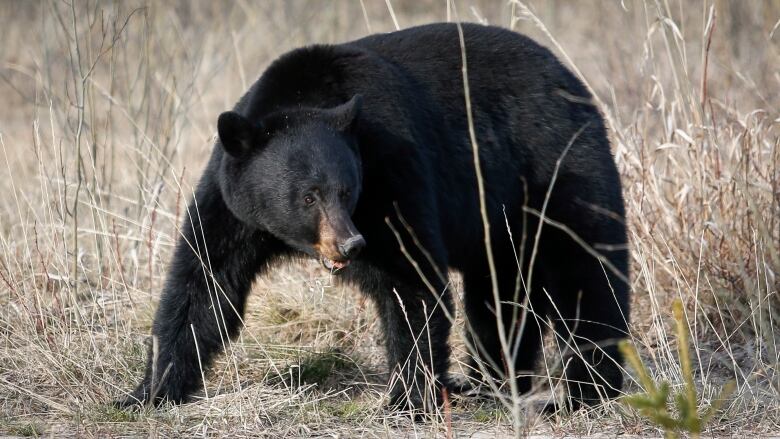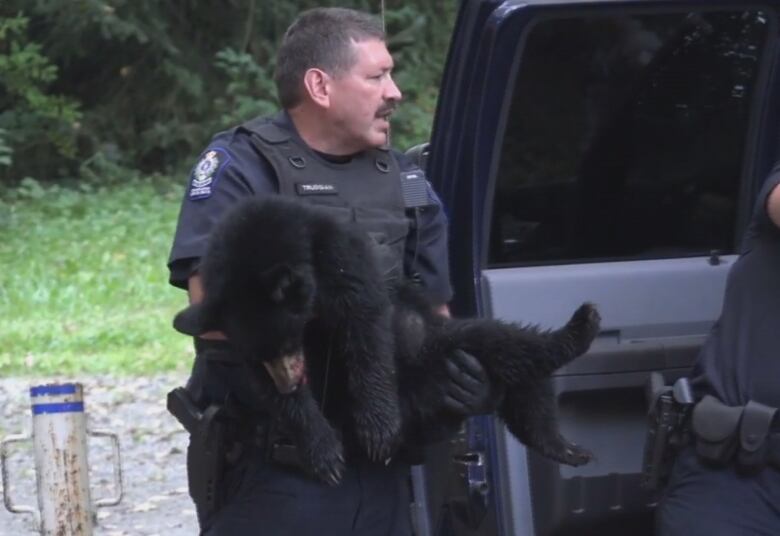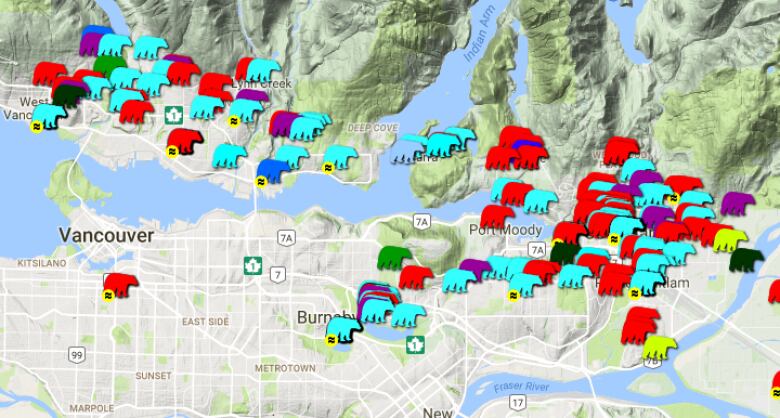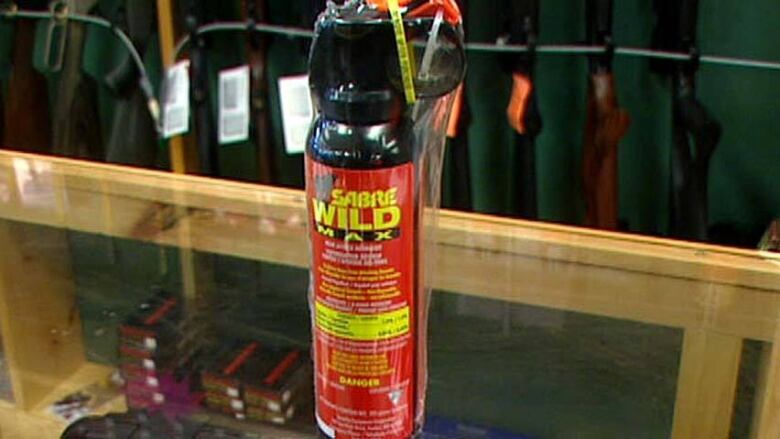Encounters expected to increase as B.C. bears begin late summer feeding frenzy
Bear activity spikes annually in August as the animals prepare for hibernation

If you're planning a woodland excursion in the next few weeks, keep your eyes peeled it's bear season.
Experts say events such asthis weekend's attack in Port Coquitlam and this morning's encounter on the North Shore are in keeping with annual trends, and that the next six to eight weeks are peak times for human-bear interactions.
Frank Ritcey, provincial coordinator for WildSafeBC, said bears become especially active in late summer as they enter a phase called "hyperphagia" that is, eating as much as possible in preparation for winter.
"They need to increase their body weight by about 30 per cent so that they can make it through the denning period," Ritcey said. "So from now until the end of September, mid October, they're super active."

A normal year so far
Ritcey said 2016 is looking to be a fairly ordinary year so far in terms of bear encounters.
WildSafeBC has recorded 345 bear encounters throughout the province in 2016 as of August 6. In comparison, it had recorded 318 by that time in 2015, and 494 in 2014.
Encounter numbers in 2016 follow a very similar pattern so far to both 2015 and 2014 both of which saw their biggest spikes in mid August.
Overall numbers were up in 2015 due to the hot, dry weather, Ritcey said. Natural food sources such as berries became scarce later in the season, he said, causing bears to wander further afield in search of snacks.
Though Ritcey was hesitant to make predictions for this fall.He said the comparatively cooler, wetter summer should mean those food sources are more plentiful, potentially dissuading bears from wandering into human territory.
Still, he said bear encounters will undoubtedly increase in frequency in the coming weeks.
"I'm hopeful that we don't get as high a spike as we had last year, but I do know that there will be an increase in bear activity," Ritcey said. "It happens every fall."

North Shore, Coquitlam hotspots for encounters
Bear encounters can happen throughout the Lower Mainland, but Coquitlam and the North Shore are particular hotspots due to their proximity to natural bear habitat.
When the Conservation Officer Service reports on animal encounters, it includes data on the type of encounter from simple sightings all the way through to full-on attacks as well as what attracted the animal to the area in the first place.
WildSafeBC's Wildlife Alert Reporting Program (WARP) website collects that data from the government daily and maps it.
Looking at encounters in the Lower Mainland shows that garbage is a very common attractant for black bears in the region, especially in Coquitlam.
Bears are opportunistic feeders who will eat almost anything they can get their paws on. But Ritcey said that even if they do venture into towns or campsites, they generally don't stick around unless they find food.
"As soon as they get any type of a food reward, then they're going to stay in town," Ritcey said. "It's not safe for the community and it's not safe for the bears either."
The City of Coquitlam recently stepped up enforcement of fines for residents who leave out bear attractants, such as garbage or ripe fruit, an an attempt to reduce the number of bears becoming conditioned to humans and dependent on their garbage for food.

If you see a bear: don't run
If you encounter a bear yourself, Ritcey said the number-one thing to remember is to not run away.
Instead, remain calm, give the bear space and back away slowly. Ritcey said bear spray available at most outdoor outfitters is the most effective way to stop an attack already in progress.
Ritcey said many encounters can be avoided by watching for signs of bear activity in the area, including fresh scat, claw marks on trees, and signs of digging. Hikers are advised to travel in groups and make plenty of noise, and Ritcey said dog owners should keep their pets on a leash while in bear country.
Ritcey urged people to remember that the vast majority of bear encounters end without incident.
"[Usually] the bears turn, they go their way;we turn and we go our way," he said. "When you do get an attack, it's an anomaly."












_(720p).jpg)


 OFFICIAL HD MUSIC VIDEO.jpg)
.jpg)



























































































